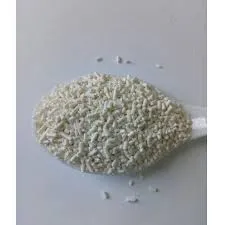
Exploring the Impact of MSG as a Flavor Enhancer in Culinary Delights
The Role of MSG as a Flavor Enhancer
Monosodium glutamate, commonly known as MSG, has been a staple in the world of culinary arts since its discovery in the early 20th century. As a flavor enhancer, MSG is celebrated for its ability to intensify the natural flavors of food, making it a popular ingredient in various cuisines around the globe. Understanding its origins, uses, and the controversies surrounding it is essential for anyone interested in the science of flavor.
The Discovery of MSG
MSG was first isolated in 1908 by Japanese chemist Kikunae Ikeda. While studying the taste of kombu, a type of edible kelp used in traditional Japanese cooking, Ikeda identified glutamic acid as the compound responsible for its unique flavor. He recognized that this flavor, which is often described as umami, could be isolated and crystallized. This led to the commercialization of MSG as a flavor enhancer, forever changing the way many dishes were prepared.
How MSG Works in Cooking
The umami taste, a fundamental flavor alongside sweet, sour, bitter, and salty, is primarily attributed to glutamate, a naturally occurring amino acid. When MSG is added to food, it enhances the savory profile, making dishes more palatable and rich in flavor. It works by stimulating specific taste receptors on the tongue, leading to a prolonged and intensified flavor experience.
MSG is particularly popular in Asian cuisines, where it is commonly used in soups, sauces, and stir-fries. However, it has also found its way into processed foods, snacks, and seasonings worldwide. From a scientific standpoint, the use of MSG can help reduce the need for excessive salt and sugar, promoting a healthier approach to flavor enhancement.
The Controversies Surrounding MSG
flavour enhancer msg

Despite its widespread use and recognition for enhancing flavor, MSG has not been without criticism and controversy. In the late 20th century, claims surfaced that MSG could cause various adverse effects, including headaches, nausea, and an array of other symptoms known as Chinese Restaurant Syndrome. This label emerged from anecdotal reports that linked the consumption of MSG-heavy meals to discomfort.
However, extensive scientific research has failed to establish a definitive link between MSG and these health concerns. The FDA and other health organizations have recognized MSG as safe for consumption, stating that it does not pose any significant health risk for the majority of the population. Still, some individuals may have varying sensitivities, much like other food ingredients such as gluten or lactose.
The Nutritional Aspects of MSG
One of the significant advantages of MSG is that it provides a way to enhance taste without adding significant calories. It contains about one-third of the sodium found in table salt. For individuals looking to reduce their sodium intake while still enjoying flavorful meals, MSG can be an attractive alternative. Some studies suggest that incorporating MSG into meals may improve satisfaction and reduce the overall consumption of high-sodium foods, leading to better dietary choices.
Conclusion
Monosodium glutamate remains one of the most effective and popular flavor enhancers in the culinary world. Its ability to elevate the taste of food while contributing minimal calories and sodium makes it an advantageous ingredient for those looking to enhance flavor without compromising health. While the controversies surrounding MSG have led some to avoid it, the scientific community largely supports its safety for consumption.
As we continue to explore and understand the intricate world of flavors, it is crucial to base our dietary choices on evidence and personal experience rather than myths and misconceptions. Whether used in traditional recipes or modern culinary creations, MSG serves as a testament to the chemistry of flavor and its role in enriching our food experience. Understanding this dynamic can empower both home cooks and professional chefs to deliver delicious meals that bring joy and satisfaction to every table.
-
Why Glacial Acetic Acid Food Grade Is Essential in FlavorNewsMay.26,2025
-
Surging Export Growth of Food Additives in ChinaNewsMay.26,2025
-
How Ammonium Nitrate Fertilizer Boosts Crop YieldsNewsMay.26,2025
-
How 1,2,3-Benzotriazole Shields Plastics from UV DegradationNewsMay.26,2025
-
Cyanide in Gold Mining: Protecting People and the PlanetNewsMay.26,2025
-
Aluminum Hydroxide in Modern Sunscreen FormulationsNewsMay.26,2025
-
Understanding Synthetic Rubber OptionsNewsApr.27,2025
Hebei Tenger Chemical Technology Co., Ltd. focuses on the chemical industry and is committed to the export service of chemical raw materials.
-

view more DiethanolisopropanolamineIn the ever-growing field of chemical solutions, diethanolisopropanolamine (DEIPA) stands out as a versatile and important compound. Due to its unique chemical structure and properties, DEIPA is of interest to various industries including construction, personal care, and agriculture. -

view more TriisopropanolamineTriisopropanolamine (TIPA) alkanol amine substance, is a kind of alcohol amine compound with amino and alcohol hydroxyl, and because of its molecules contains both amino and hydroxyl. -

view more Tetramethyl Thiuram DisulfideTetramethyl thiuram disulfide, also known as TMTD, is a white to light-yellow powder with a distinct sulfur-like odor. It is soluble in organic solvents such as benzene, acetone, and ethyl acetate, making it highly versatile for use in different formulations. TMTD is known for its excellent vulcanization acceleration properties, which makes it a key ingredient in the production of rubber products. Additionally, it acts as an effective fungicide and bactericide, making it valuable in agricultural applications. Its high purity and stability ensure consistent performance, making it a preferred choice for manufacturers across various industries.











